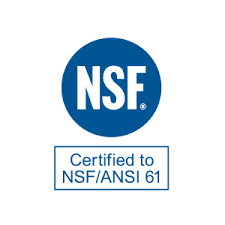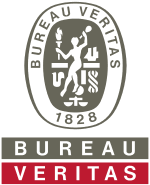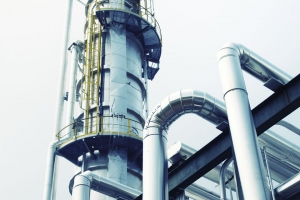| POLYURETHANE COATING, WHITE (N-TYPE) | |
| PRODUCT NUMBER | 725 |
| TYPE | A two-pack, non-yellowing polyurethane coating based on acrylic resin, polyol resin and isocyanate hardener with weather resistant titanium dioxide. |
| USES | Used for wood products, vehicle, metal products and FRP. |
| CHARACTERISTICS | 1. High
gloss and hardness, good gloss and color retention. 2. Excellent adhesion and abrasion. 3. Excellent resistance to acids, alkalis, oils and salts. 4. High gloss with smooth appearance. |
| FINISH | High gloss |
| COLOR | White |
| HIDING POWER | Above
12.5 m2 |
| MASS DENSITY | Above 1.1 Kg/L (mixture) |
| VISCOSITY | 60~80
KU (mixture, 25℃ |
| DRYING TIME | Set-to-touch 1 hr.
Dry hard 6 hrs. (25℃ |
| OPTIMUM FILM THICKNESS | Wet 60 microns Dry 30 microns |
| THEORETICAL COVERAGE | 63.0 |
| OVERCOATING INTERVALS | Min. 4 hrs. Max. 6 months |
| MIXING RATIO | Base : hardener = 87 : 13 (by wt.) |
| NON-VOLATILE CONTENTS | Above 60% (mixture) |
| POT LIFE | 4 hrs. (mixture, 25 ℃ ) |
| HEAT RESISTANCE | Continuous 93℃ Intermittent 121 |
| THINNER | No.736 Polyurethane Thinner |
| THINNING RATE | 10~25% (cleaning tools excluded) |
| PRECEDING COATS | No.711
Polyurethane Sanding No.733 Polyurethane Zinc Chromate Primer (for metal) Epoxy Primers Series |
| STORAGE SHELF LIFE | Minimum 1 year under normal storage conditions. |
| APPLICATION METHOD | Spray, Brush, Roller |
| NOTE | 1.
Mix base and hardener according to the mixing ratio and stir thoroughly. 2. Adhered moisture, grease, dust on substrate must be removed thoroughly. 3. Please use special thinner for dilution to avoid causing bubbles or pinholes. 4. Hardener cover must be tightly closed to avoid reaction with moisture in air to form bubbles and gelation. 5. Mixture of base and hardener must be used up within pot life. 6. Strictly controlling application, not to exceed 50 microns per coat, to avoid bubbles formation. 7. All equipments must be cleaned immediately after use. 8.The lacquer sanding is not suitable as a primer for this paint.Avoid applying paint in rainy or the moisture above 85% RH, otherwise the adhesion will be affected by moisture of substrate and the paint film will be loss its gloss. |
![]()

|

|

|

|
 |

|

|

|


